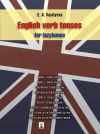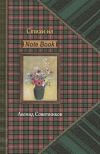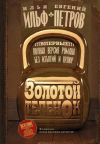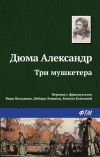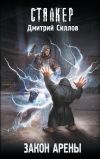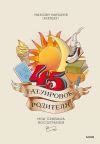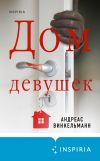Текст книги "English grammar: 100 main rules"
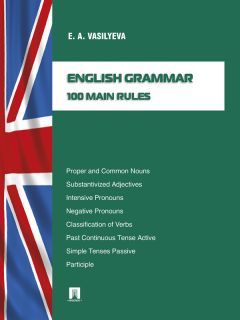
Автор книги: Елена Васильева
Жанр: Иностранные языки, Наука и Образование
сообщить о неприемлемом содержимом
Текущая страница: 1 (всего у книги 3 страниц) [доступный отрывок для чтения: 1 страниц]
E. A. Vasilyeva
English grammar: 100 main rules

RULE 1. Proper and Common Nouns

RULE 2. Countable and Uncountable Nouns

RULE 3. Plural Form Nouns


RULE 4. Irregular Plural Form of Nouns

RULE 5. Gender of Nouns


RULE 6. Common and Possessive Cases of Nouns



RULE 7. Syntactic Functions of Nouns

RULE 8. Adjectives

RULE 9. Adjective Degrees of Comparison

Positive Degree of Adjectives
1. Description
a busy street, a clever dog, a dull day, an expensive ring, a good attitude, a jealous man, an important signal, a weak accent, young people
Note
Qualitative adjectives can be modified by adverbs of degree.
a dreadfully dull day, extremely hot weather, a fairly large message, a hugely important signal, an immenselyfamous picture, incredibly useful advice, an intensely busy street, a little/a bit expensive ring, a rather good attitude, a reasonably weak accent, quite an interesting list, a slightly somber event, a too jealous husband, an unusually clever dog, very young people
2. Comparison
1) Equality
as + adjective + as
The white kitten is as cute as the grey one.
Playing games is as important as studying.
2) Inferiority
not so + adjective (+ as)
His idea is not so stupid.
The view did not turn to be so splendid as we had expected.
half as + adjective (+ as)
Jimmy is half as tall as Jonny.
Our house is half as big as the neighbours'.
3) Superiority
twice (three times) as + adjective (+ as)
The way was twice as long as yesterday.
Olivia's typing speed is three times as fast as Andrew's.
Comparative Degree of Adjectives
The comparative degree demonstrates the difference between two objects.
1) Superiority
– Most one– and two-syllable adjectives form the comparative degree by adding – er ending.
adjective + – er
clever – cleverer, dull – duller, large – larger, weak – weaker, young – younger
Apple juice is sweeter than orange juice.
These tickets are cheaper than those ones.
Note
– Adjectives ending in – y change the – y into – i and add – er.
busy – busier, pretty – prettier, lazy – lazier, funny – funnier, juicy – juicier
Cf.: shy – shyer, sly – slyer, grey – greyer
– One-syllable adjectives with a short vowel followed by a consonant double this consonant and add – er.
big – bigger, hot – hotter, fat – fatter, thin – thinner
– Several two-syllable adjectives and all three– (and more) syllable adjectives form the comparative degree with more.
more + adjective
more expensive, more famous, more important, more interesting, more profitable, more somber, more useful
The new hairdo makes Andrew more handsome.
Time is more valuable than money.
2) Inferiority
less + adjective
less busy, less clever, less hot, less expensive, less famous, less important, less interesting
This way is less easy than the way Andrew offers.
I prefer less dangerous driving.
Note
Use certain adverbs to enhance the meaning of comparative adjectives.
far/much/a lot
slightly/a little/a bit
Olivia is far prettier than her sister.
This will sound a bit more polite.
Note
It is possible to use the double comparison of adjectives combined with change-of-state verbs.
adjective-er + and + adjective-er
more adjective + and + more adjective
The days are getting shorter and shorter.
The word is becoming more and more ridiculous.
Note
Use the following combination to emphasize the inevitable consequence in degree change of comparative adjectives.
The adjective-er, the adjective-er
The more adjective, the more adjective
The sweeter products are, the unhealthier they are.
The more luxurious goods are, the more expensive they are.
Superlative Degree of Adjectives
The superlative degree demonstrates differences among three or more objects.
1) Superiority
– Most one– and two-syllable adjectives form the comparative degree by adding – est ending.
the adjective + – est
clever – the cleverest, dull – the dullest, large – the largest, weak – the weakest, young – the youngest
– Several two-syllable adjectives and all three– (and more) syllable adjectives form the comparative degree with most.
the most + adjective
the most expensive, the mostfamous, the most important, the most interesting, the most profitable, the most somber, the most useful
2) Inferiority
the least + adjective
the least busy, the least clever, the least hot, the least expensive, the least famous, the least important, the least interesting
The least strong cheese will do for this sort of wine.
What are the least prestigious jobs?


RULE 10. Substantivized Adjectives
Substantivized Adjectives
the + adjective
1) substantivized adjectives denote a whole class of persons characterized by a specific feature. In most cases such adjectives agree with a plural verb.
the elderly, the handicapped, the lonely, the needy
Olivia's aunt works in school for the blind.
The rich also cry.
2) substantivized adjectives may as well refer to the whole nation.
the Japanese, the English, the Dutch
The ancient Chinese first invented paper.
The Welsh try to preserve their language and culture.
3) A number of substantivized adjectives even take the plural ending – s, which let them pass into the category of nouns.
the marines, the moderns, the nobles, the regulars, the Russians
The Conservatives are leading in the polls.
If you want to see the true measure of a man, watch how he treats his inferiors, not his equals.
4) substantivized adjectives indicate abstract notions. such adjectives agree with a singular verb.
the future, the past, the present, the plural, the singular, the unknown, the unreal, the variable, the visible
The obvious is fabulous, but the fabulous is obvious.
You should use the Future Simple in this sentence.
RULE 11. Syntactic Functions of Adjectives
Syntactic Functions of Adjectives
1. Attribute
We liked that warm meeting.
I hear some pleasant music.
Note
There is a particular order for adjectives to describe a noun.
Opinion – Size – Shape – Colour – Pattern – Age
– Origin – Material – Purpose + Noun
a clever young British professor
two nice tiny round black old metal musical boxes
that beautiful swift white new sailing boat
2. Predicate
The meeting was warm.
Your mother looks sad.
I feel good about the offer.
A predicate adjective follows a linking verb (to be, to seem, to appear, to look, to taste, to smell, to feel, to sound), but it refers to the subject of the sentence.
3. Subject and Object (Substantivized adjectives)
The unemployed demanded concrete programs of public works.
The young should help the old.
RULE 12. Cardinal and Ordinal Numerals



RULE 13. Fractional Numerals. Operations with Numerals
Fractional Numerals
Common fraction
The numerator is a cardinal number; the denominator is an ordinal number.
1/2 – one (a) half
1/3 – one (a) third
1/4 – one (a) quarter
1/5 – one (a) fifth
1/6 – one (a) sixth
If the numenator is more than one, then the denominator is used in plural.
2/3 – two thirds
3/4 – three quarters
5/6 – five sixths
Decimal fraction
Each digit is pronounced separately.
25. 105 – two five point one nought five
0.746 – nought point seven four six
Operations with Numerals
1. Addition
1+2=3 – one plus two is (equals) three; 1, 2 – the addends, 3 – the sum
2. Subtraction
3–2=1 – three minus two is (makes) one; 3 – the minuend, 2 – the subtrahend, 1 – the difference
3. Multiplication
3*2=6 – three multiplied by two/twice three is six; 3 – the multiplicand, 2 – the multiplier, 6 – the product
4. Division
6:2=3 – six divided by two is three; 6 – the dividend, 2 – the divisor, 3 – the quotient
RULE 14. Numerals for Time Expressions


RULE 15. Syntactical Functions of Numerals
Syntactical Functions of Numerals
1. Attribute
Do you know the seven wonders? This is Andrew's third trip abroad.
2. Subject
Four of them didn't join us.
2004, 2008 and 2012 are leap years.
3. Predicative
They were the first.
It's five o'clock.
4. Object
How many apples has he eaten? He's eaten three.
Show me those two, please.
RULE 16. Personal Pronouns

RULE 17. Possessive Pronouns

RULE 18. Absolute Form of Possessive Pronouns


RULE 19. Reflexive Pronouns

RULE 20. Intensive Pronouns

Note
Intensive pronouns do not substitute nouns, but intensify their meaning.
You must make that choice yourself.
Andrew repaired the bike himself.
We want to go there ourselves.
RULE 21. Demonstrative Pronouns
Demonstrative Pronouns
Demonstrative pronouns point to a certain object or person that can be either near or far in distance or time.

Note
1) Attribute
This situation is incredible.
We met that man on the station.
Would you quit your job under these circumstances?
Those shoes were so cute!
That girl has such a voice!
Such rules usually take effect.
They work at the same department.
Why are you asking me the very same questions?
It's possible to use demonstrative pronouns before the word one.
These apples are sweeter than those ones.
Andrew is an intelligent young man. Yes, he is such one.
That's the same one I've been looking for!
The demostrative pronoun may be positioned before the adjective that refers to the same noun.
This pretty girl is my sister.
What are these strange conclusions?
It's such a wonderful life.
It's always the same old story.
2) The demonstrative pronoun can also be used in place of nouns.
– Subject
This must not continue.
Those were the days.
– Object
Will you take this?
Don't tell them that.
Andrew can't work with those.
RULE 22. Classification of Indefinite Pronouns

RULE 23. Some, Any and their Compounds
some
– statements
I need some information about language courses.
Some of the m istakes were silly.
– offers and suggestions
Would you like some tea?
Shall I bring some refreshments?
– requests
Where can I get some paper?
Could you give us some examples?
any
– negative sentences
Olivia didn't know any of them.
It doesn't make any sense.
– questions
Have you got any questions?
Did any of Andrew's friends call him?
– if-clauses
I can lend her my cell phone if there's any need.
If you come across any problems, please, report us.
– statements
Contact any of our assistants.
Any answer will do.

Somebody phoned you ten minutes ago.
Would you like something to eat?
Can we take something to make notes on?
You may invite anyone.
Are they waiting for anybody?
Andrew has not found anything.
RULE 24. Each, Every, Either
each
– only with countable nouns
– refers to two or more things or persons that should be regarded separately and individually
There were cars parked on each side of the street.
She kissed each of her children.
– agrees with a singular verb
There are four apartments in our building. Each of the apartments has its private entrance.
Each item was checked.
– However, if the pronoun each follows the plural subject, it agrees with the plural verb.
They each do their share of work.
I have two people in the office and we each have our own email.
every
– only with countable nouns
– refers either to indefinite number of things/persons or to a group of things/persons considered as a whole.
We could see every star in the night sky.
Every player in the team should cooperate.
– with modifiers such as nearly, almost, practically
Olivia knows almost every neighbour.
Practically every problem has practical solutions.
– with time words such as minute, hour, day
There's a bus every ten minutes.
Every morning Andrew goes jogging in the park.
– makes compound pronouns with – body, – one, – thing
Everybody likes presents.
They invited everyone but James and Karen.
Everything's done by computer nowadays.
Note
the pronoun everyone differs from the word combination every one.
Everyone is a synonym to everybody and refers only to persons.
Everyone enjoyed the movie.
Every one is a synonym to each one and refers both to persons and things.
He watched a lot of movies and enjoyed every one.
– agrees with singular verb
Every citizen is obliged to observe the constitution.
Each and every one of us has their own opinion.
either
– with countable nouns
– refers to two or more things or persons
There are shops at either end of the street.
Either of these books is useful.
Nick can wear watches on either hand.
Note
the pronoun either differs from the adverb either, which is used in negative sentences.
If you don't order the dessert, I won't either.
Olivia doesn't know his address, Andrew doesn't know either.
– agrees with a singular verb
Does either of you speak Chinese?
Has either of you two seen Harry?
RULE 25. All, Both
all
– with uncountable nouns and plural countables
– has a generalized meaning
All children need love.
Olivia said good buy to them all.
– the pronoun all agrees with plural verb if it's used with plural countables; if it refers to uncountable nouns, then pronoun all agrees with singular verb.
All the students were ready.
All the milk was fresh.
All the book was torn out.
Note
You may use the whole + noun instead of all the + noun
when it goes with a singular countable noun.
The whole book was torn out.
– If all precedes other noun modifiers (the, this, my, etc), then it can be used either as all + noun, or all of + noun.
Andrew invited all his (all of his) friends.
It's important to answer all the (all of the) questions.
Note
Use all of before object pronouns, but just all after them.
Andrew invited all of them (them all).
All of you (You all) have various questions.
– As the subject it agrees with either singular or plural verb, that depends on the context.
All is well that ends well.
All have gone.
– If the subject is a personal pronoun, then all is put between and the verb.
We all decided to dinner out the next day.
They all skate in winter.
– If there is a linking verb, an auxiliary or modal one, then all goes after the first verb.
We are all here.
They have all seen the movie.
You should all take part in this conference.
Note
All is quite often substituted by comounds everybody, everyone, everything.
All are happy. => Everyone is happy.
All is ready. => Everything is ready.
both
– with plural countables
– refers to two persons or things
I like both (ties).
Both (applicants) are equally experienced.
– agrees with a plural verb
Which project is better? Both are good.
– Use of between both and another determiner.
Both of these restaurants are expensive.
Olivia knows both of his brothers.
– Use both of with a personal object pronoun (him, her, them, etc); use both after a personal subject pronoun (he, she, they).
Both of them (They both) are suitable.
It's a game that both of us (we both) can play.
RULE 26. Many/Much, Few/Little, Enough
many/much
– many with countable nouns; much with uncountable nouns
– refer to indefinitely large number of things or persons
Are there many books on the desk?
Will it take much time to get to the centre?
– mostly used in negative sentences and questions
How many friends have you got?
There isn't much sense in it.
– If many/much are determined by as, so, too, very, use them in affirmative sentences as well.
There were too many variants to choose.
They have changed so much this year.
– If many/much are the subject or the subject attribute, then they can be used in affirmative sentences too.
Much of the work has already been completed.
Many students attend extra classes.
Note
Words a lot (of), lots (of), a plenty (of) are commonly used in affirmative sentences.
We have a lot to discuss.
There are lots of easy ways to follow.
They still have plenty of snow.
few, little
– few with countables; little with uncountables
– refer to indefinitely small number off things or persons; the implied meaning is "not enough"
Nick is sad because he has few friends here.
There was little flour, so I couldn't bake a cake.
– The indefinite article a/an with the pronouns few/little changes the implied meaning for positive «enough».
John has a few friends there.
There was a little flour, so I could bake a cake.
– It is preferable to use any in negative sentences and questions.
Does John have any friends there?
Andy doesn't have any friends there.
Is there any flour at home?
There is no flour at all.
enough
– with both countable and uncountable nouns
– refers to indefinite but sufficient number of something
You have enough time to write an article.
Andrew told them enough.
RULE 27. One/Ones
one
– refers to an undetermined person in general
One cannot learn a language in three months.
One should pay taxes.
Note
In the informal language undetermined persons can be as well expressed by the pronouns you or they.
You must always try to do your best.
They say the weather is changing.
Note
The pronoun one can be used in the possessive form (one's) or in its reflexive form (oneself).
One must learn from one's mistakes.
One should be careful not to hurt oneself.
– agrees with a singular verb
One never knows what may happen.
More than one variant is appropriate.
– substitutes the noun to avoid repetition; often used in Which-questions
See those two handsome men? Andrew is the taller one.
Which dress has Olivia chosen? The red one.
Note
the plural form of the pronoun is also possible.
Andrew bought three apples: a red one and two yellow ones.
Your problems are the ones that understood by many parents.
RULE 28. Other, Others, Another, the Other, the Others
other
– with countables and uncountables
– The implied meaning "different" is used for indefinite number of things or persons.
Can you bring other shoes, I don't like these ones.
I can't meet you today. Let's do it some other time.
Let's watch other movie, I'm scared.
others
– substitutes a plural noun
Others may know us better than we know ourselves.
Some tourists stay on the beach, others explore the town.
another
– only with singular countable nouns
– The implied meaning is "additional, one more".
Please give me another chance.
The example is not clear? Would you like another?
the other
– with countable plural or singular nouns
– The implied meaning "remaining, the rest" is for definite number of things or persons.
There are two pens on the desk – one is blue, the other is red.
You may take one or the other. You cannot take both.
the others
– substitutes plural nouns
There were three keys in the drawer. One is here, where are the others?
Don't forget the others.
RULE 29. Reciprocal Pronouns
Reciprocal Pronouns
the pronouns refer to two or more people who do the same thing.
each other
– refers to two persons or things
Olivia and Andrew are talking to each other.
Sometimes parents disagree with each other.
one another
– refers to three or more persons or things
The footballers are passing the ball to one another.
The delegates followed one another into the debating chamber.
RULE 30. Negative Pronouns
Negative Pronouns No
– with both countable and uncountable nouns in negative sentences
There's no milk in the fridge.
We had no opportunity to meet you.
None
– substitutes countable and uncountable nouns
Is there a computer in the room? No, none.
Most apples are ripe, none is/are green.
I thought there was a little money, but none was left.
Note
The pronoun no defines a noun whereras the pronoun none substitutes it.
He has no friends.
Does he have any friends?None.
Neither
– not one nor the other of two things or persons
Neither of Andrew's parents works.
One mustn't smoke or drink here. Neither is permitted.
RULE 31. Indefinite Pronouns – Verb Agreement

RULE 32. Interrogative Pronouns
Interrogative Pronouns
Who?
– refers exclusively to persons
– serves to ask about the subject of the statement
Who has eaten my porridge up?
Who is speaking? Who is it?
– If it is used with a preposition (which follows the verb), it acts as an object of the sentence.
Who are they waiting for?
Who did Andrew dance with?
Who will you tell us about?
Whose?
– the possessive form of pronoun Who
– refers to persons
– serves to ask about an object or its attribute
We've listened to all the reports. Whose was the most interesting?
Whose bags are these?
Whom?
– the objective form of pronoun Who
– refers to persons
– serves to ask about an object in the sentence
Whom are you going to invite?
Whom did you speak to?/ To whom did you speak to?
What?
– refers to things
– serves to ask about the subject of the statement
What is green and round?
What has happened?
– acts as an attribute to the subject
What language are you speaking?
What kind of music does she like?
What is she like?
– When it refers to persons it means «what kind of occupation or job» the subject has.
What are you?
What was your uncle? He was a policeman.
Which?
– refers to a certain number of things or persons
– acts as the subject or its attribute
Which is your floor, 10 or 111?
Which way will you choose?
Note
If a great number of variants is implied, then one should use the question word what.
Which is your floor? (a few variants)
What is your address? (a lot of variants)
RULE 33. Relative Pronouns
Relative Pronouns
who
– refers to persons
– substitutes the subject and at the same time connects it with the second part of the sentence
He who laughs last laughs best.
The man who is speaking to Olivia is her father.
whom
– refers to persons
– substitutes the object and at the same time connects it with the second part of the sentence
Andrew named those whom he recommended for the job.
You should display respect for those people with whom you interact on a daily basis.
Note
It is preferable to use the pronoun who instead of whom in informal speech.
The official letter usually begins with the phrase: To Whom It May Concern.
It doesn't matter who it may concern to.
whose
– refers to persons
– substitutes the attribute to the subject and at the same time connects it with the second part of the sentence
The man whose autograph I got is a famous footballer.
All students whose score is high enough will get into the course.
which
– refers to things
– substitutes the subject or an object and at the same time connects them with the second part of the sentence
The cars, which facilitate our life, make it worse at the same time.
I'd like to change the computer which I'm working at.
that
– refers to things and persons
– substitutes the subject, its attribute or an object and at the same time connects them with the second part of the sentence
Olivia has finally watched the film that came out long time ago.
The man that Andrew was debating with is his professor.
This is the house that Jack built.
Moving to a metropolis is all that she wants.
Note
Pronouns which and that differ. The subordinate clause with which implies additional but not essential, urgent information; the subordinate clause with that carries significant further intensifying information.
The diamonds, which are expensive, will always attract women.
The diamonds that are most expensive were put in the safe-box.
Note
Pronouns whom, which, that may be omitted if they act as an object in a subordinate clause.
The woman (whom) Tim met is his wife.
The papers (which) he put into the safe-box are very important.
The picture (that) you can see here was donated by a collector.
RULE 34. Compound Pronouns with – ever

RULE 35. Syntactic Functions of Pronouns
Syntactic Functions of Pronouns
1. Subject
2. Object
3. Predicative
Personal pronouns: I, we, you, he, she, it, they
It belongs to Andrew. (subject)
The colleagues believe her. (object)
Those were they. (predicative)
Possessive absolute pronouns: mine, ours, yours, his, hers, its, theirs
Theirs is an old mansion, ours was built in 1999. (subject)
I'll send the letter to mine. (object)
This netbook is his. (predicative)
Demonstrative pronouns: this, that, these, those
This tastes delicious. (subject)
I'll take those. (object)
Indefinite pronouns: any, some, each, either, all, both, much, few, little, enough, plenty, others, the others
Some of them haven't arrived. (subject)
They have both. (object)
That's all. (predicative)
Compound Indefinite pronouns: somebody, someone, something, anybody, anyone, anything, everybody, everyone, everything, nobody, no one, nothing
Does anybody live here? (subject)
Olivia told nobody her secret. (object)
It can be everyone. (predicative)
Interrogative pronouns: who? what? which?
Who knows Mary?(subject)
What has happened? (subject)
Which was the first? (subject)
4. Attribute
Possessive pronouns: my, our, your, his, her, its, their
Our course starts in September.
I don't understand your ideas.
Demonstrative pronouns: this, that, these, those
That man looks strange.
Why don't you read these books?
Indefinite pronouns: some, any, no, every, each, other, another, either, neither
Can you give us some sheets of paper?
Other people think differently.
Interrogative pronouns: what? whose?
What music do you like?
Whose children are these?
RULE 36. Articles

Note
Countable singular nouns are logically used with an article in any way.
I've bought a car. Where's the car?
RULE 37. Indefinite Article (a/an)

Use of Indefinite Article
1. A thing or a person is mentioned for the first time.
What's this?It's a computer.
A man is standing at the window.
Note
The article a/an is used after there is.
There is an apple in the vase.
There is a man at the window.
2. It is pointed out that a thing or a person belongs to a particular group.
Give me an apple, please.
The article is written by John Smith, a student of our college.
He is an engineer.
Africa is a continent.
3. Any or every thing or a person of a certain group is implied.
A child can do it.
A cat knows where the mouse is.
4. It is used in the meaning of «one».
An apple a day keeps the doctor away.
He didn't say a word.
A tea and a cake, please.
Note
The same meaning is revealed in the article a when it goes before the numerals hundred, thousand, million.
a hundred friends, a thousand years, a million ways
As well as before the nouns couple, dozen, pair, score and after the word half.
a couple of times, a dozen of eggs, a pair of jeans
There was barely a score of people.
We met two and a half years ago.
Note
We use a/an in this meaning before the time words – second, minute, hour, day, week, month, year.
Let's ignore the rules for just a second.
Wait a minute.
He'll be back in an hour.
Olivia attends her classes twice a week.
5. before certain ailments (health problems)
Lora is getting a headache.
Do I have a cold or the flu?
6. with little, few in positive meaning
There is still a little hope for a change.
Can you cite a few facts?
7. after such, quite, rather
It was such a beautiful day.
Andrew offered rather a good idea.
8. in exclamations started with What
What a pleasure to hear from you!
What an ungracious remark!
9. with the verb to have together with several verbs of movement to express a short-time activity.
to have a look, to have a sleep, to have a swim, to have a try, to have a rest
10. in fixed collocations

RULE 38. Zero Article
Use of Zero Article
1. Things or persons are mentioned for the first time.
Who are they? – They are (Ø) sportsmen.
He doesn't eat (Ø) bananas.
2. Things or persons (countale plural nouns) as well as abstract notions and material (uncountable nouns) refer to a certain class or group.
(Ø) Milk is good for (Ø) children.
He likes (Ø) music.
Note
The zero article is used even if there is an attributive adjective which goes before the noun.
He likes (Ø) modern music.
(Ø) Fresh milk is good for (Ø) little children.
3. The zero article is used when a noun is preceded by another determiner.
1) demonstrative or possessive pronoun
Olivia should take these papers.
Are your friends here?
Note 2
The zero article is used with words north (northern), south (southern), west (western), east (eastern)
Eastern customs differ from western habits.
He speaks according to the southern pronunciation.
2) a cardinal number
A football referee is assisted by two subordinates.
Note
If a cardinal number is used after a noun, then the zero article is required.
Room 10, Lesson 13, Page 97
4. before exclusive job titles
Professor John Wood has been appointed (Ø) Secretary General.
1) before names
(Ø) Liz Brown is staying at this hotel.
Have you seen (Ø) William Drake?
Note
The zero article is needed with vocative expressions
(Ø) Children, calm down!
(Ø) Ladies and gentlemen, welcome to our conference.
2) a person's title or rank go before his or her name
(Ø) Queen Elizabeth II, (Ø) Sir Winston Churchill, (Ø) Lord Byron, (Ø) Doctor Watson, (Ø) Miss Marple, (Ø) Mrs. Doubtfire, (Ø) Colonel Sanders, (Ø) Admiral Nelson, (Ø) President Obama
Note
If there is no name after the person's title or rank, then the definite article the is required.
The President met with journalists.
The Queen celebrates her 85th official birthday.
Note
The zero article is used to denote sib relationships.
(Ø) Sister Jane, (Ø) Brother Thomas, (Ø) Aunt Polly, (Ø) Uncle Ben
5. 1) before continents
Africa, America, Antarctica, Asia, Australia, Europe
Note
The zero article also refers to the parts of the continents North/Northern, South/Southern, Central, East/Eastern, West/Western
North America, Southern Africa, Central Europe, Southeastern Asia, Latin America
2) before countries
(Ø) China, (Ø) France, (Ø) Great Britain, (Ø) Russia, (Ø) Saudi Arabia, (Ø) South Korea, (Ø) Ukraine, (Ø) Vatican
Exceptions: the Netherlands, the Gambia, (the Democratic Republic of) the Congo
3) before regions
(Ø) Texas, (Ø) Quebec
4) before islands
(Ø) Greenland, (Ø) Majorca, (Ø) Sakhalin
Note
The definiite article is required before the word isle together with its geographical name.
The Isle of Man, the Isle of Capri
5) before mounts, volcanoes
(Ø) Kilimanjaro/(Ø) Mount Kilimanjaro, (Ø) Everest/(Ø) Mount Everest, (Ø) Fuji/(Ø) Mount Fuji, (Ø) Mont Blanc, (Ø) Vesuvius/(Ø) Mount Vesuvius
6) before lakes
(Ø) Lake Baikal, (Ø) Loch Ness, (Ø) Lake Superior, (Ø) Lake Balkhash
Exceptions: the Great Lakes, the Great Salt Lake
6. 1) before cities and towns
(Ø) Athens, (Ø) Cape Town, (Ø) London, (Ø) Moscow, (Ø) New York, (Ø) Rome, (Ø) Saint Petersburg, (Ø) Stratford-on-Avon, (Ø) Washington
Exception: the Hague
Note
The definite article is used before the word City together with its name. The City of Moscow, the City of New York, the City of Rome.
2) urban districts
(Ø) Manhattan, (Ø) Soho, (Ø) Chinatown
Exceptions: the City/the Square Mile, the Bronx
3) before streets, squares, parks
Внимание! Это не конец книги.
Если начало книги вам понравилось, то полную версию можно приобрести у нашего партнёра - распространителя легального контента. Поддержите автора!Правообладателям!
Данное произведение размещено по согласованию с ООО "ЛитРес" (20% исходного текста). Если размещение книги нарушает чьи-либо права, то сообщите об этом.Читателям!
Оплатили, но не знаете что делать дальше?